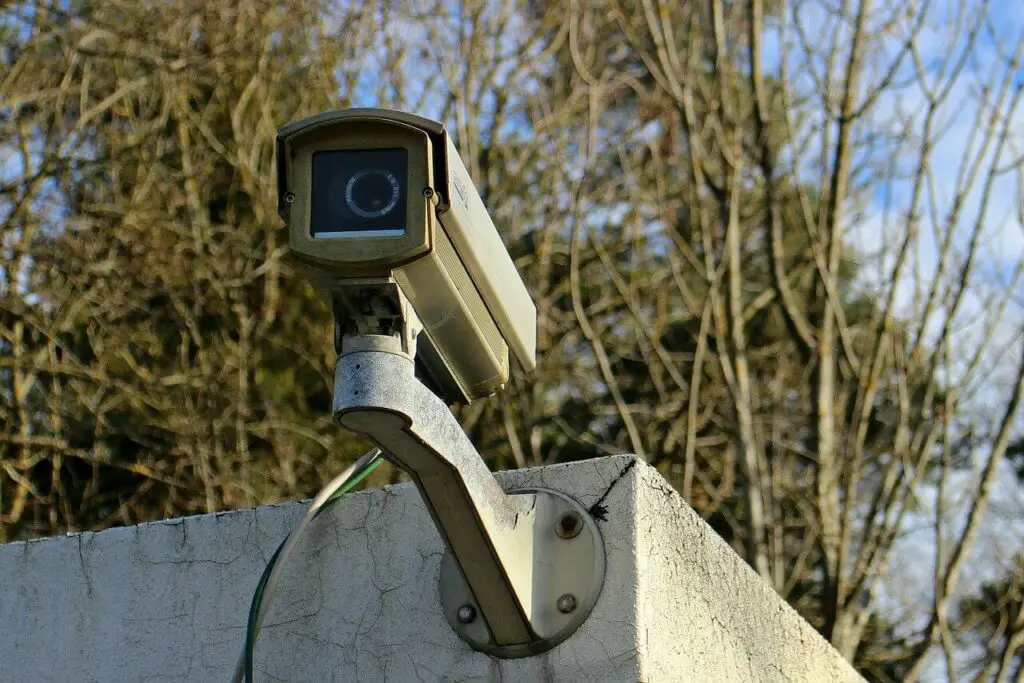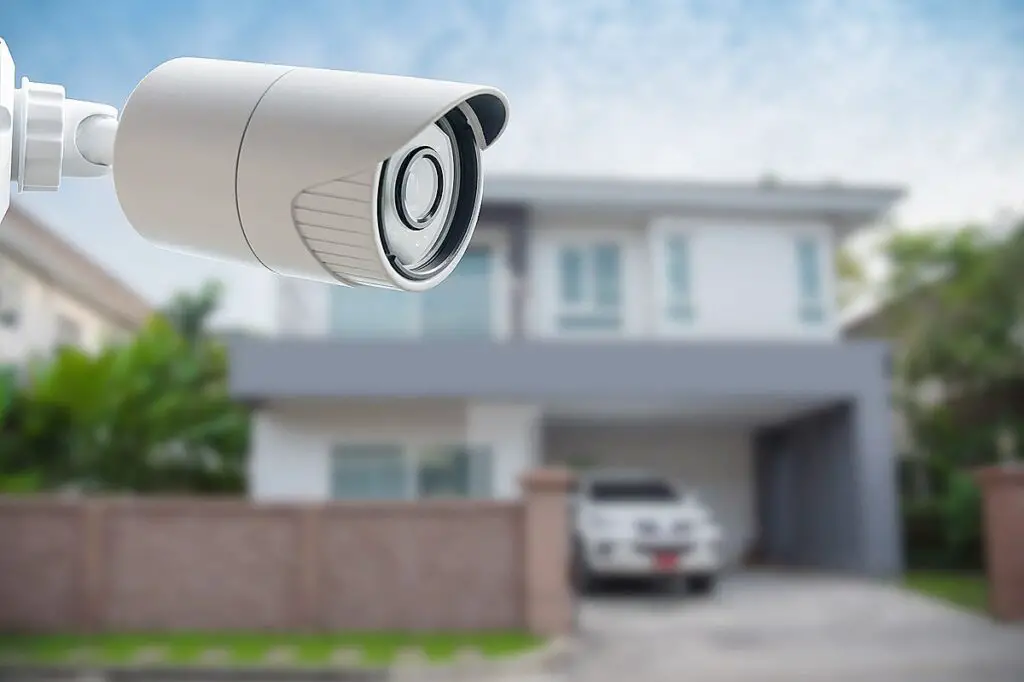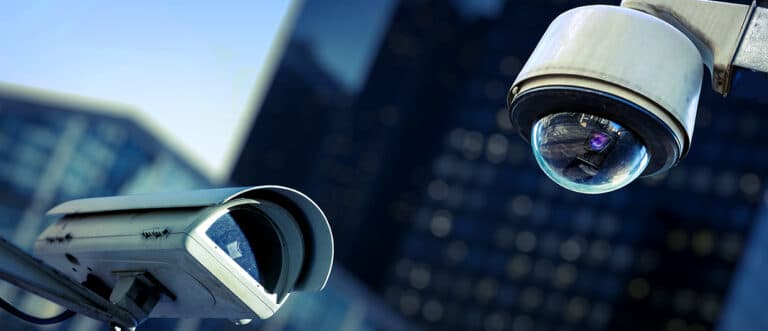Introduction
How Long Do Surveillance Cameras Keep Footage: Surveillance cameras have become an integral part of our modern society, playing a crucial role in maintaining public safety and security. Businesses, residences, public spaces, and governments use them .These cameras continuously record and monitor activity, providing proof for crimes or security breaches.
The retention period of surveillance camera outdoor varies depending on several factors, such as the purpose of the surveillance, legal requirements, and the storage capacity of the system. Different jurisdictions and businesses may have surveillance footage retention laws. Some countries require public video recordings to be retained for investigations.
In private places like businesses or neighborhoods, the retention time can change depending on the owner’s choice or what the law says. Depending on their business needs and possible legal obligations, different groups may keep footage for a few days or weeks, while others may keep it for months or even years. New technologies have had a big effect on monitoring systems by making it possible to use cloud-based solutions and storage devices with a lot of space. This has made it possible to keep footage for longer periods of time and make it easy to access old footage.

Can you save surveillance footage?
There are two main ways to store video from security cameras: on-site locally and in the cloud. Some security cameras have hard drives that store video. This is “local storage.” It can be on the camera itself or in the central NVR or DVR.
You can save surveillance footage for future reference or evidence. The ability to save footage is a fundamental feature of modern surveillance systems, allowing for the preservation of recorded data. There are several methods and technologies available for saving surveillance footage.
Surveillance systems save footage on DVRs or NVRs. These devices capture and store security camera video. They have built-in hard drives that can store footage for a certain duration, depending on their storage capacity.
To local storage devices, cloud-based storage solutions have gained popularity in recent years. Cloud storage allows for remote and off-site storage of surveillance footage, providing greater accessibility, scalability, and redundancy. Cloud storage lets you see surveillance footage from anywhere with an internet connection.
So why employ surveillance cameras?
Prevent theft and Vandalism: Security cameras act as a strong deterrent in keeping away any activities of theft, vandalism, or break-ins.
Many applications use surveillance cameras for safety, security, and monitoring. Here are some reasons security cameras are popular:
Crime prevention and deterrence: Surveillance cameras deter criminals and safeguard properties, public areas, and people.
Investigation and evidence gathering: Surveillance cameras are essential for criminal, accident, and other investigations. Video can identify suspects, track movements, and reconstruct incidents.
Public safety: Surveillance cameras monitor public spaces, transit hubs, and essential infrastructure for security, crowd control, and emergency response.
Workplace monitoring: Many companies utilize surveillance cameras to monitor employee behavior, boost productivity, deter theft and vandalism, and enforce safety rules.
Traffic management: Traffic management systems monitor traffic flow, identify infractions, and enforce traffic laws using surveillance cameras.
How surveillance cameras work?
Analog cameras record images and then send the signal over a coaxial cable to a DVR (Digital Video Recorder). The DVR converts the video from analog to digital signals, compresses the file, and stores it on a hard drive. Digital security cameras on IP-based CCTV systems, on the other hand, record the images digitally.
Image capture: Surveillance cameras employ CCD or CMOS image sensors to collect pictures. These sensors transform light into electrical impulses for camera film.
Signal processing: Circuitry processes image sensor signals in the camera. Signals are amplified, filtered, and digitalized for storage or transmission. A surveillance camera’s range and depth of field are determined by its lens’ light focus. Lens quality affects sharpness and clarity.
Transmission: The camera may send video in many ways. Wi-Fi or cellular networks can connect it, or coaxial or Ethernet wires can connect it. Monitors or recording equipment may display or save transmitted video.
Store and retrieve: Surveillance cameras link to DVRs, NVRs, or cloud storage systems. The video is stored on these devices for subsequent replay.
Does a surveillance camera record?
There are a lot of home security cameras that will record and send you a warning when they notice motion. One type can record continuously (CVR) 24 hours a day, seven days a week. Having a security camera in your home is a great way to keep it safe and give you peace of mind.
Surveillance cameras record visual data for further study. Security cameras continuously digitize and archive video frames.
Film may be utilized for criminal investigations, real-time monitoring, security, and legal evaluation. The storage capacity of the recording equipment, user settings, and surveillance intent may affect how long a surveillance camera records.
Camera and system setting affect recording. Cameras with built-in hard drives or memory cards store video locally. Some are linked to an NVR or DVR that saves video data. More people are using cloud storage to safely store surveillance video remotely.
Why is surveillance good?
Needless to say, placing cameras in strategic areas throughout a city can help ensure public safety, protect property, and prevent crimes However, security cameras don’t discourage all crimes.. And the abuse of public video cameras would violate privacy and personal rights.
It is possible for surveillance to help people and groups feel safer, more secure, and better overall when it is used in an honest and responsible way. There are some good things about monitoring, such as the following:
The presence of security cameras may deter criminals. Tracking and recording deters crime in monitored locations.
For criminal cases, surveillance cameras are a must. The movie might help the cops solve crimes by naming people, setting dates, and reliving what happened.
Public safety and security: Public surveillance cameras watch for security risks, protecting people and averting violence and terrorism. They may help regulate crowds during public events and crises.
Monitoring high-risk areas: Surveillance cameras at banks, airports, and government buildings safeguard precious assets, essential infrastructure, and unlawful entry.
Traffic management: Road and junction surveillance cameras let authorities monitor traffic flow, identify infractions, and react quickly to accidents and emergencies.
How long do surveillance cameras typically keep footage?
Many factors determine how long surveillance cameras store video. These include surveillance purpose, legal requirements, and system storage. It relies on the legislation, business, and person to determine retention time. Some considerations:
Legal requirements: Different countries and regions may have specific regulations dictating the minimum retention period for certain types of surveillance footage, particularly in public spaces or government facilities. These requirements aim to ensure the availability of evidence for law enforcement investigations.
Purpose of surveillance: Retention durations vary by use. Security and investigations may need lengthier video storage at banks and casinos.
Operational reasons: Organizations or individuals may choose the retention duration based on operational demands, legal responsibilities, or industry norms. Some firms hold film for days or weeks, others for months or years.
How long video may be kept depends on the surveillance system’s storage capacity. Larger storage systems or cloud-based solutions can keep film longer.
What is the common retention period for surveillance camera footage?
The retention time for security camera video depends on local rules, industry standards, and personal preferences. Due to jurisdiction and restrictions, retention periods vary widely. But here are some broad thoughts:
Legal restrictions frequently decide public surveillance retention periods. Some jurisdictions require public surveillance video to be kept for a minimum time to help law enforcement. This might last days, weeks, or months, depending on local laws.
Private surveillance: In private settings like companies and homes, the retention time is usually up to the owner or operational demands. Establishment type, security issues, and legal responsibilities may affect it. Private surveillance might retain data for days, months, or years.
Industry practices: Some sectors have surveillance footage retention regulations. Financial firms and casinos may need to keep film longer for security and regulatory reasons.
Storage capacity: Surveillance system storage might affect retention duration. Compared to systems with limited storage, local or cloud-based solutions may retain data longer.
Are there any legal requirements regarding the retention of surveillance camera footage?
Many laws require security camera footage to be preserved for a specified time. These rules may be different based on the place where you live and the laws and rules that are in place. Here are some important things to think about:
Data Protection and Privacy Laws: Many countries have data protection and privacy laws that govern the collection, storage, and use of personal data, which may include surveillance footage. These laws often outline specific requirements regarding the retention of personal data, including surveillance footage, and the need to obtain consent or establish legal grounds for processing.
Industry-Specific Rules: You may need to follow rules about how long you can keep surveillance footage in certain fields, such as banks, healthcare, and transportation. Most of the time, these rules protect private information, make sure everyone follows the rules, and deal with security problems that only businesses have.
Public Surveillance: Public surveillance may have limitations about how long video footage can be stored for law enforcement and security. These may include minimum retention times and usage and sharing restrictions for recorded material.
Legal Proceedings: Surveillance footage can be crucial evidence in legal proceedings 0.Laws may necessitate court-useable footage.

Conclusion
A key part of any tracking method is how long the video is kept. In general, it makes things less safe, less likely to follow the law, and less likely that crimes will be solved. How long you keep something can change based on the law, the reason you’re keeping it, and the place you have. Public tracking systems might have rules about how long they have to keep data in order to help the police. In private settings, people and companies can pick their own retention policies based on how they need to work and what legal risks they might face.
Moreover, technological advancements have revolutionized surveillance systems, allowing for higher-capacity storage solutions and cloud-based storage options. These advancements have expanded the possibilities for longer retention periods and easier access to archived footage. However, it is crucial to strike a balance between retaining footage for an appropriate period and respecting privacy concerns. As surveillance technology continues to evolve, ethical considerations surrounding the use and retention of surveillance footage will become increasingly.

